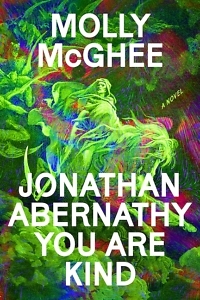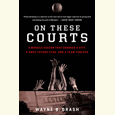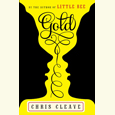Dream or Nightmare?
Molly McGhee’s debut novel takes a surreal look at modern employment
Nashville-area native Molly McGhee’s debut novel Jonathan Abernathy You Are Kind opens in a nondescript office, a familiar scene of vinyl chairs and grubby carpet: “In such rooms, there are always contracts to sign. Ballpoint pens.”
 Less familiar, however, is how the title character has found his way to this office: “Last night two people visited Jonathan Abernathy in his dreams and told him to come here. In this place he could find forgiveness: of his loans, they said, yes, but also of other things.” Recruited for a job as a “dream auditor,” Jonathan Abernathy can’t say no; he doesn’t even want to say no. He submits his application, certain this job will be the path to success he’s been dreaming of — the path out of debt and despair.
Less familiar, however, is how the title character has found his way to this office: “Last night two people visited Jonathan Abernathy in his dreams and told him to come here. In this place he could find forgiveness: of his loans, they said, yes, but also of other things.” Recruited for a job as a “dream auditor,” Jonathan Abernathy can’t say no; he doesn’t even want to say no. He submits his application, certain this job will be the path to success he’s been dreaming of — the path out of debt and despair.
Abernathy isn’t hired right away, however. As he languishes, hoping to hear back about the dream job, he takes a job at the hot dog stand where he first worked as a teenager. He acknowledges the indignity of the situation, even as he knows he has no choice but to submit and persevere. “Once his self dies (the ego-y, embarrassed part of him that feels things), he can do anything. He can work sixteen doubles, dumpster dive at midnight, walk three hours in the rain, you name it. Experience tragedy. Homelessness. Loss. If there is no one inside him, if he vacates his body’s premises, there is no one to experience the humiliation that goes hand in hand with poverty.” McGhee employs this turn skillfully, taking readers from the relatively light humor of one moment to the darker realities of the next.
There are inconsistencies in the narrative voice here, which a generous reading could attribute to the dreamlike quality of the novel. For instance, the narration in the opening chapters slides between Abernathy’s point of view, delivered in close third person with a voice distinct to him, and a true omniscient narrator. The novel occasionally slips into the perspective and voice of secondary characters, as when Abernathy’s neighbor (and friend) Rhoda first appears: “Currently Rhoda part-times as a bank teller. She hopes to go full-time soon, for the benefits. Health care, you know? But she’s not so sure they’ll hire her.” In dreams, things often leap from one perspective to another with no transition, and here the technique is initially effective. It becomes less effective as the novel progresses, but by then readers will be locked in to the story, eager to learn whether Jonathan Abernathy will manage to claw his way out.
 Even after Abernathy is hired to audit dreams, he stays on at the hot dog stand, making lunch for office workers by day and entering their dreams by night. The idea is that by identifying and removing aspects of the subconscious that reveal anxiety, the dream auditors keep employees from dangerous outcomes, “like murdering each other, or having poor workplace performance. The poor workplace performance especially.”
Even after Abernathy is hired to audit dreams, he stays on at the hot dog stand, making lunch for office workers by day and entering their dreams by night. The idea is that by identifying and removing aspects of the subconscious that reveal anxiety, the dream auditors keep employees from dangerous outcomes, “like murdering each other, or having poor workplace performance. The poor workplace performance especially.”
Abernathy turns out to be terrible at the job, but it doesn’t seem to matter as he manages to keep doing the work and even advance, despite the toll it takes on his personal life and well-being. His blossoming relationship with Rhoda deteriorates, and his mentor Kai disappears. The edges between dream and real life start to blur, but Abernathy persists.
He feels an increasing desperation, but it doesn’t overwhelm the scant but insistent hope that comes from having a real paycheck and some relief from the pressure of his substantial debt. “The truth of it — which, if he works hard enough, he can capture in his periphery — the real truth is that he would do just about anything to stop feeling dread.” And here is where the real familiarity might land, especially for the many who are similarly staggering under the weight of debt and economic precarity. Jonathan Abernathy You Are Kind looks hard at work and money and debt and loss, but it also raises fascinating questions about how we want to be perceived and what motivates us, even — or perhaps especially — in desperate times. It forces us to consider: What happens when the American Dream turns into a nightmare?

Sara Beth West got fired from her first job. By her dad. Since then, she’s walked away from many other jobs, including nanny, retail worker, farmhand, choir director, teacher, social media manager, and compost truck driver. Most recently, she left a great job as a public librarian. But the one job that keeps following her around is writer. She writes book reviews and conducts author interviews for Shelf Awareness, Chapter 16, Southern Review of Books, and more. She lives in Chattanooga.


